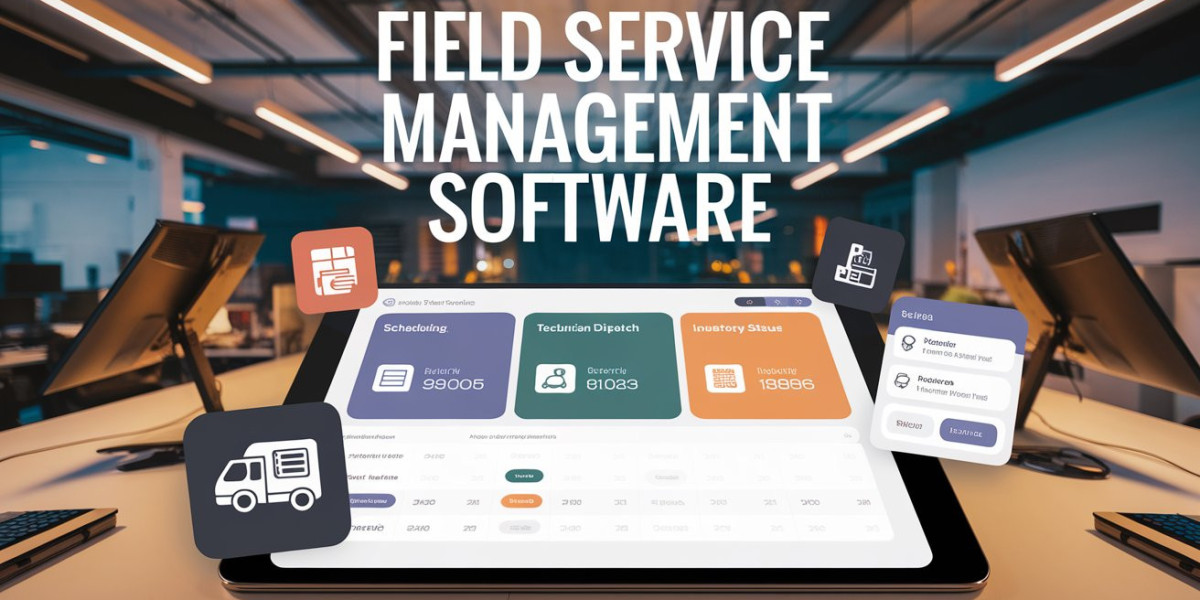In today's fast-paced business environment, field service teams are vital to assuring customer happiness, satisfying service level agreements, and preserving operational efficiency. With the advancement of technology, controlling field operations has grown more complicated and difficult. Field Service Management (FSM) software automates and streamlines field operations, increasing efficiency and customer satisfaction.
What is Field Service Management Software?
Field Service Management software is a complete application that enables firms to manage their field operations. It includes tools for scheduling, dispatching, work order management, inventory keeping, invoicing, and more. Companies can use FSM software to ensure that their field agents have the proper tools and information at the right time, allowing them to complete jobs more efficiently and effectively.
Key Features of Field Service Management Software
- Work Order Management: FSM software helps track, assign, and manage work orders from creation to completion, ensuring no task falls through the cracks.
- Scheduling and Dispatching: Automates scheduling and assigns tasks to field agents based on their location, skills, and availability, reducing downtime and maximizing productivity.
- Inventory Management: Keeps track of parts and materials used in the field, helping to prevent overstocking or stockouts.
- Mobile Access: Field agents can access real-time data, work orders, customer details, and inventory updates from their mobile devices, keeping them informed on the go.
- Customer Management: Improves customer relationships by ensuring that technicians have access to historical data, including previous work performed, equipment used, and customer preferences.
- Invoicing and Billing: Automates billing processes by generating invoices based on completed work orders, ensuring timely and accurate payments.
Benefits of Using FSM Software
- Increased Efficiency: By automating scheduling, dispatching, and work order management, FSM software minimizes administrative tasks, allowing employees to focus on more critical activities.
- Improved Customer Satisfaction: Timely deliveries, quicker service response times, and reduced service errors all contribute to a better customer experience.
- Cost Savings: FSM software helps reduce operational costs by optimizing routes, inventory management, and field agent productivity.
- Real-Time Insights: Managers can track the progress of work orders, monitor technician performance, and gain insights into operational bottlenecks, leading to data-driven decision-making.
- Enhanced Communication: The seamless communication between the office, field agents, and customers ensures everyone stays on the same page and service expectations are met.
Challenges of Field Service Management
While FSM software offers numerous benefits, businesses may face challenges during implementation, such as:
- Training Field Agents: Ensuring technicians understand how to use the software efficiently.
- Integration with Existing Systems: FSM software must integrate smoothly with existing systems (e.g., CRM, ERP) to avoid data silos.
- Cost of Implementation: Some FSM software solutions can be expensive for small businesses, making it essential to assess ROI before adopting a new system.
Field Service Management software is a vital tool for firms that want to improve operational efficiency, cut costs, and increase customer happiness. FSM software assists firms in remaining competitive in an increasingly technologically advanced environment by automating and streamlining field operations. If you want to streamline your field service operations, investing in an FSM solution can help you improve your organization.







